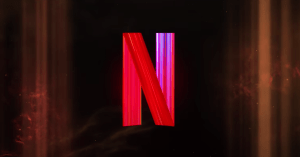During negotiations for the next coronavirus relief package, one of the sticking points for Democrats was Republicans’ insistence on federal liability protections for businesses and schools to protect them from COVID-19-related lawsuits. Senate Majority Leader Mitch McConnell refused to negotiate over this, and it was included in his HEALS Act proposal late last month. Some experts described this issue to Yahoo Finance as a “phony” problem, since it is hard to prove personal injury or wrongful death cases related to COVID-19 even without the bill.
The liability protection bill is called the Safeguarding America’s Frontline Employees to Offer Work Opportunities Required to Kickstart the Economy Act or Safe to Work Act. If enacted, the bill would be retroactive to cases from December 2019 and up to October 2024. It requires employees or customers suing businesses to provide “clear and convincing evidence” to prove their claims that a business was responsible for the spread of the virus at their workplace.
Videos by PopCulture.com
Plaintiffs need to “establish that the defendant acted with gross negligence or willful misconduct that caused the plaintiff’s coronavirus injuries,” and defendants would not be liable it “they undertook reasonable efforts to comply with applicable mandatory coronavirus standards and regulations in effect at the time of the alleged exposure.” Also, it allows plaintiffs to file the lawsuit in state or federal court, but the defendants can move it to federal court.
Democrats believe the law could make it more difficult for plaintiffs to sue businesses. At the same time, Republicans argue it is necessary to give companies and schools assurances that they will not face lawsuits if they reopen. But experts who spoke with Yahoo Finance believe the jockeying over the issue is “more theater than substance.” Attorney Richard Bell told the outlet, “I think there’s a phony issue out there,” further adding that it is already difficult to prove a business would be legally responsible for a coronavirus-related illness. “Even if I prove gross negligence, how am I going to prove causation here?” Bell stated.
Benjamin Edwards, associate professor of law at UNLV William S. Boyd School of Law, said the fears about coronavirus lawsuits are “overblown” and called the Safe to Work Act’s provisions a “grab back” meant to block lawsuits. “What they’re really trying to do is everything they can to deter these lawsuits and make them largely unwinnable,” he said.
Small business litigator Andrea Sager disagreed, noting that business still has to defend against lawsuits, even if a plaintiff is not able to prove the claims. She also disagreed that the law would allow businesses to be careless, adding, “The law says they still have to make that reasonable effort to comply with local standards.” Sager noted, “That’s the issue with my clients — having to spend any amount to defend that lawsuit — whether the plaintiff has a chance in hell, or not. Even businesses that did have savings, they’re running on ‘E’ right now just trying to stay alive.”
The Safe to Work Act was just one of the issues Republicans and Democrats disagreed on for the next coronavirus relief package. Democrats agreed to lower their proposals to $2 trillion, but Republicans insisted the package should cost no more than around $1 trillion. Negotiations broke down on Aug. 7 with no package in place and no sign of when Americans might see another stimulus check.








